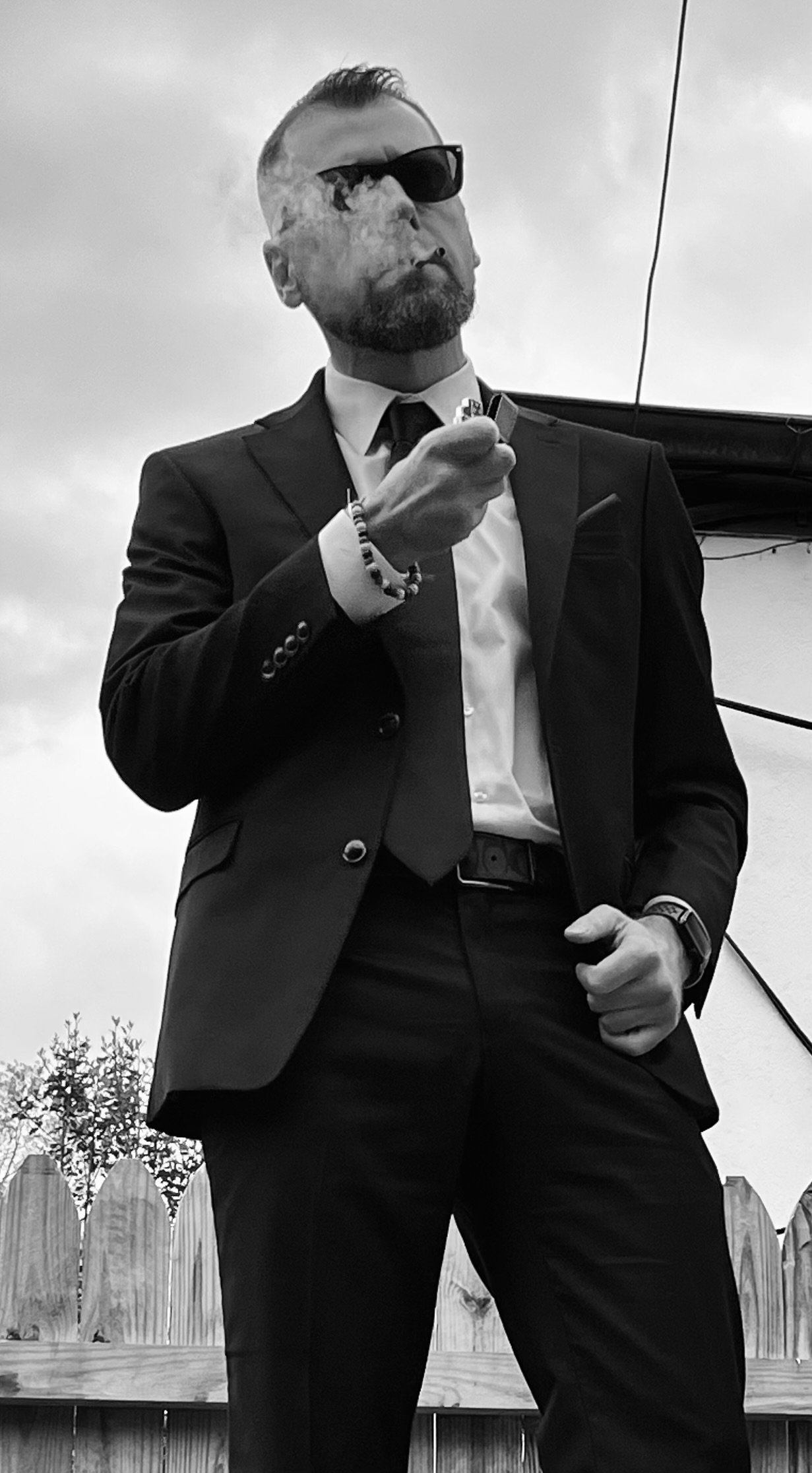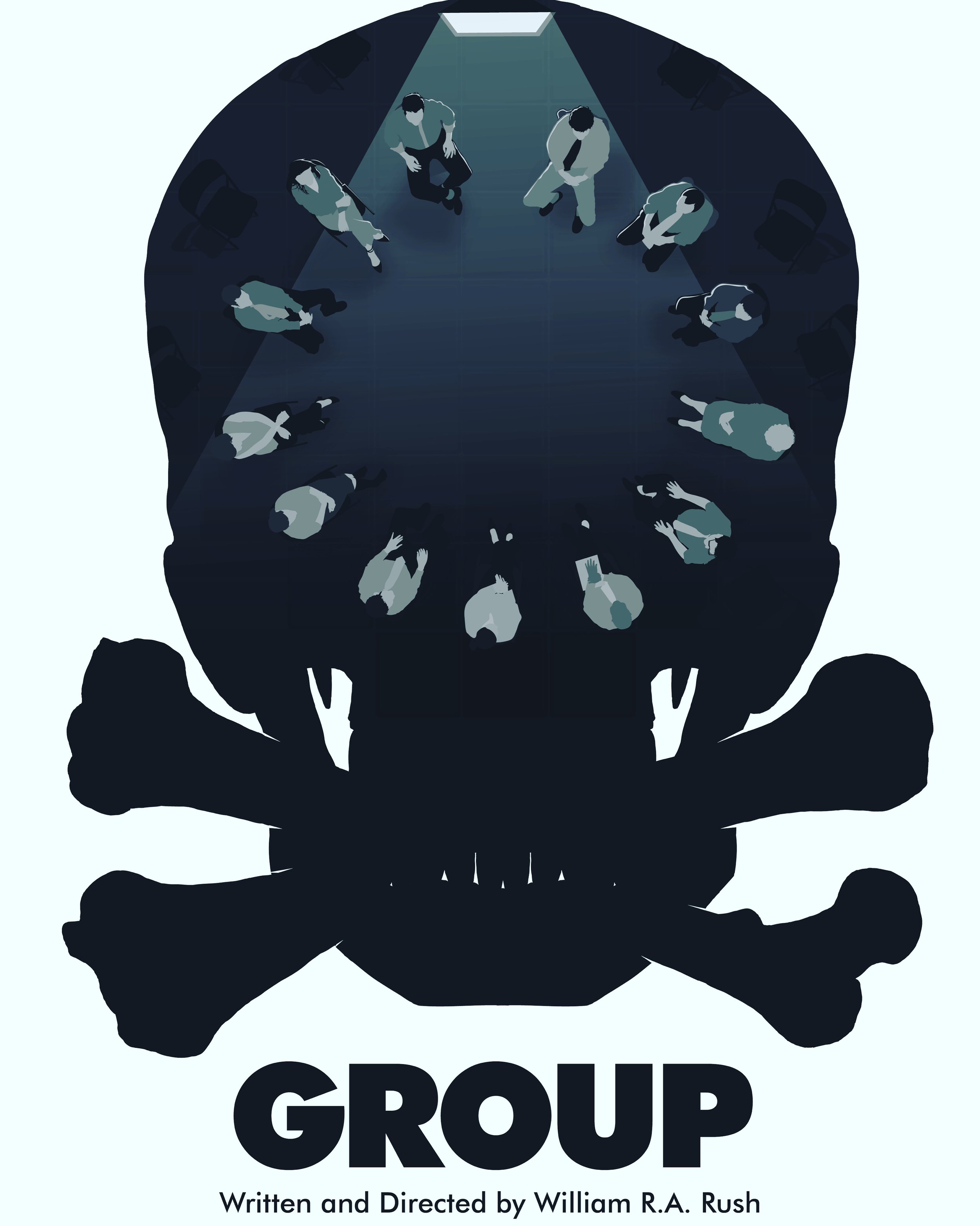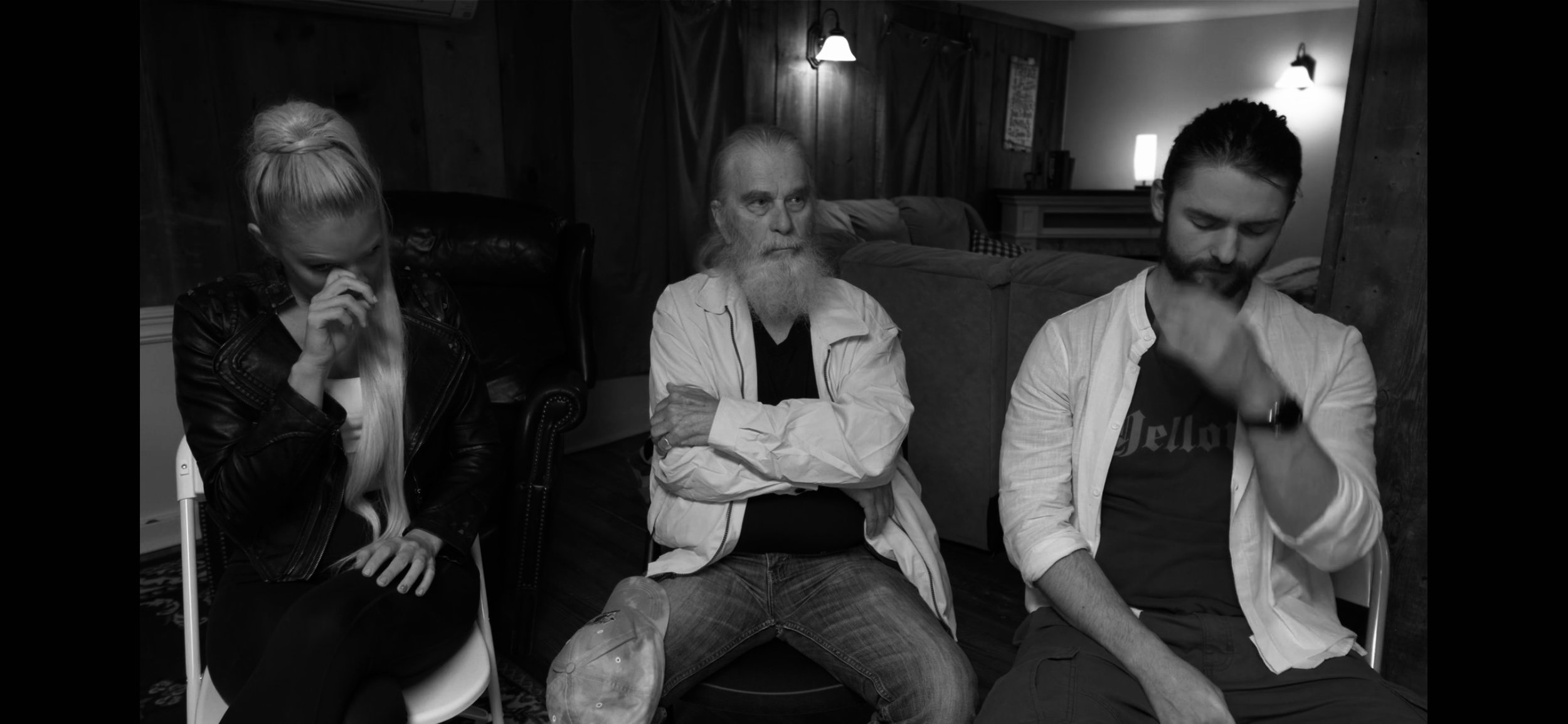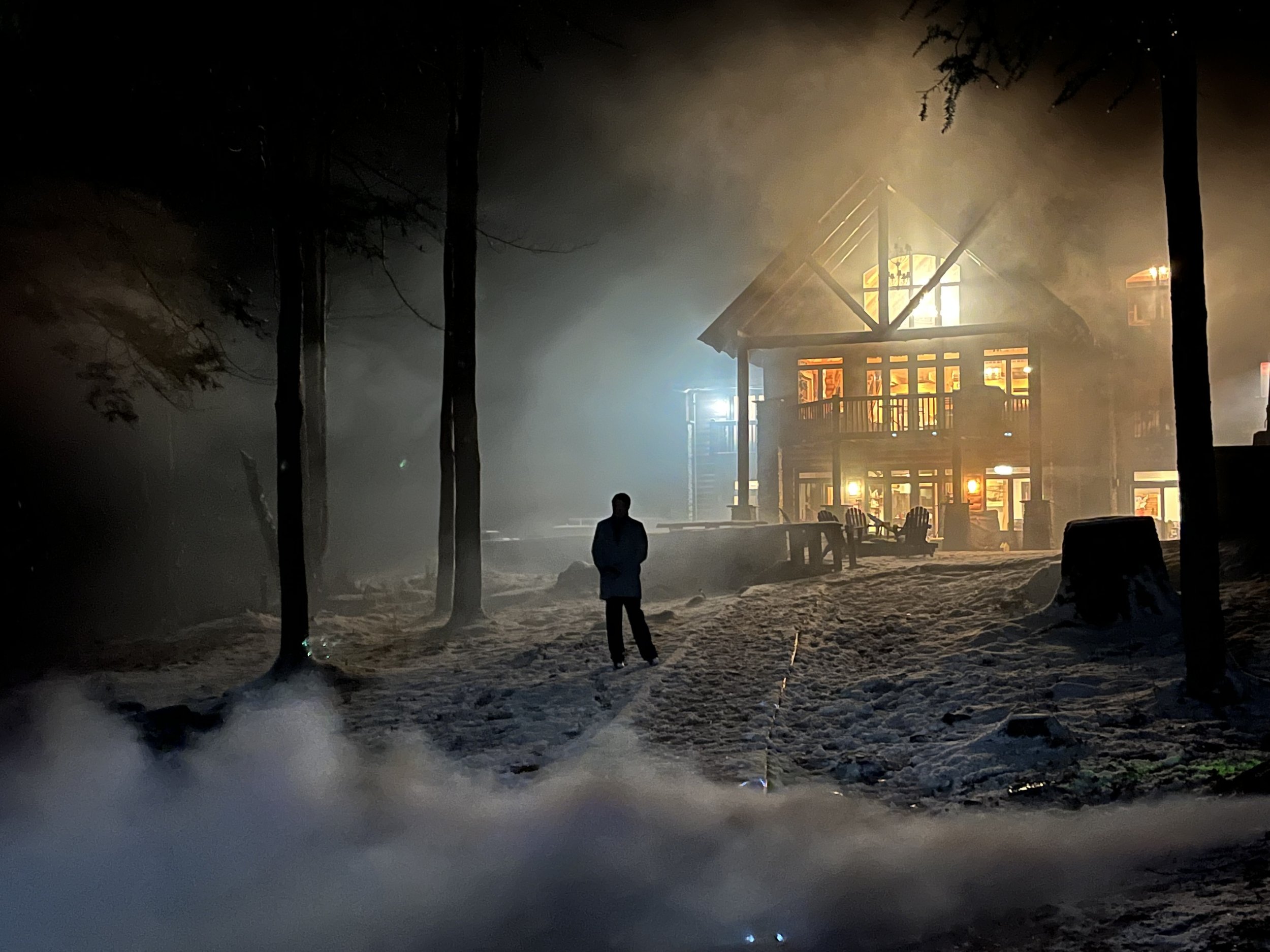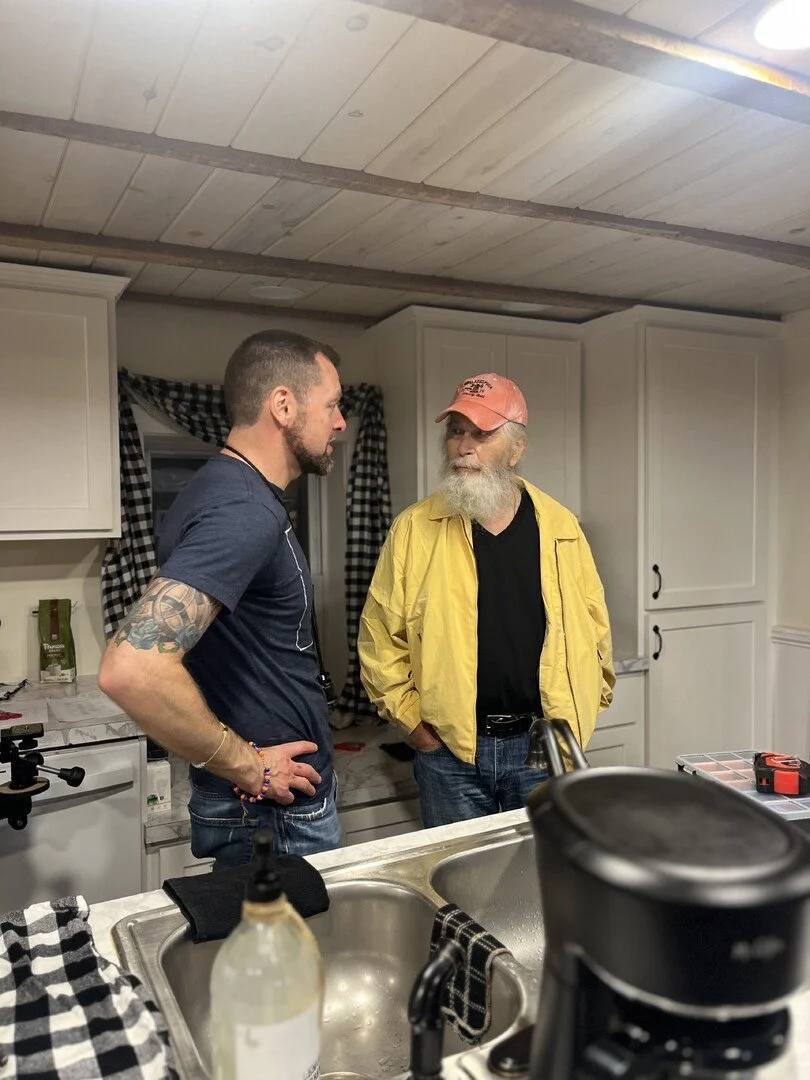Interview with upcoming director William R.A Rush
Welcome William, we are very excited to have you today with us to discuss about your work.
Who is William R.A Rush and how did the passion for filmmaking begin?
I am a USA-based attorney and father of three daughters. My passion for filmmaking developed over years and years as a fan of the artform. The works of David Lynch, Michael Haneke, Gaspar Noe and Yorgos Lanthimos were particularly inspiring. I wanted, as best I could, to make challenging cinema with those directors as primary influences. It's impossible to see their work and not be inspired.
Agnes Varda is another. Her realism in her narrative films, to the point they feel like documentaries, is another major influence and has shaped my approach a great deal. There is so much art in which to find inspiration in the medium of film. I've always been drawn to it.
Can you tell us about your previous work?
My only previous work in cinema was a short film "One for the Road", which is an adaptation of a Stephen King story. I greatly enjoyed making this film, and am proud of it. But I knew, even as I shot it, that I could do better. Better screenplay, better direction. I made numerous mistakes and I was determined to learn from each of them. I believe I did, and Group is a far better film.
Yet I know I haven't yet made my best film. I can always be better. Filmmaking is an evolving individual experience and I greatly look forward to succumbing to that evolution and becoming a better filmmaker.
CONVERSATION ABOUT: GROUP
How do you typically develop ideas for your films, and what is your creative process like from conception to completion?
When an idea comes to mind and sticks there, starts to flow a little, then I write some notes. That's when I begin to write in earnest. As I do, I begin to picture how the film will look. I finish the first draft, work that into a final draft, and then begin planning the shoot meticulously. I run through everything, angles, lenses, costumes and so forth until the film is in my head. Scouting the locations is next, with Xxena N. Rush, my amazing producer, has a sixth sense for it. From there, the shot-list begins to come together. I set up casting and schedule the shoot. Once I get to set, it's all-encompassing for me. Every aspect.
The casting process ensures that everyone is ready to go from minute one. Setup is always the wildcard, especially when contending with the influences of natural light. Once our Director of Photography, Michael Joseph Murray, takes total control of the light and camera, we're rolling. We tend to move fast. Everyone is always so prepared.
As a trial attorney, you've been accustomed to condensing complex narratives into concise presentations. How does this experience translate into your approach to filmmaking, particularly in terms of storytelling and narrative structure?
I think my legal experience has greatly helped in the realism that I hope becomes the definitive signature of my films. I strive to include only that which is strictly necessary to tell the story, trusting the audience as I would trust a jury to evaluate everything presented on their terms, knowing they have all the information they require.
The key elements of law that translate to filmmaking are intense preparation for long periods of time, the processing of significant amounts of information and coordination of people, all preparing for the same event. Years of work ultimately culminate into a single event: in the case of a legal matter, it's trial. In the case of a movie, it's filming. In each endeavor, the key is meticulous preparation.
In terms of storytelling and narrative structure, logic and realism matter most to me. I want my characters to behave as real people would, avoiding tropes and the typical mistakes and unrealistic behaviors that sometimes bother me. I try, most importantly, to write characters and situations that at least someone in the audience will identify with, and whose actions and choices most members of the audience will find rational and relatable.
Your crew includes individuals from diverse backgrounds and experiences. Could you share a memorable collaboration or moment of creative synergy that emerged during the production of "Group"?
With this cast, there were so many committed actors and a stellar crew. The best example of everyone coming together as a collaborative team was when we agreed to film everything through, not to expect me to yell "cut" at any point. The crew was prepared to record everything, to keep going, to let the scenes breathe organically. They did so perfectly.
The actors were encouraged to always be reactive during the other actors monologues. Be a challenging audience, be real, and essentially make the lead actor in a given scene work to deliver their dialogue. These human obstacles really gave a chance for all characters to develop in a very organic way. My philosophy on directing is to give the actors room to possess, own, be the characters.
This naturally includes encouraging everyone to bring their own experiences from their own experience into their characters. All LGBTQIA+ characters are played by members of the LGBTQIA+ community for example.
My sets are always a team effort. Everyone knows they have a voice and are encouraged to use it for any ideas or suggestions they have. So far, thankfully, they've all done so. It has made for a better filming experience each and every time.
How do you approach balancing realism with artistic expression in your filmmaking, particularly when portraying sensitive or challenging subject matter?
I think exploring difficult subject matter is much better than ignoring it. So many people suffer silently with their inner demons, their imperfections, their addictions to the point that no one knows of them until some calamity happens and a painful game of "what-if" starts a conversation that should have occurred before. Stigma prevents this.
I try to approach these subjects with an eye toward empathy and understanding. To abandon realism would be disrespectful in a way, but film is visual. Artistic flourishes and expression are necessary, but I tried to use them in a way that does not take away from the seriousness of the struggles of real people, but rather shows, as best I can, the inner workings of the thoughts of those struggling.
Research, interviews and consultants were instrumental in both how I wrote the characters and how I chose to shoot the film. I tried hard to avoid stereotypes, sensationalism, caricature, etc. I don't think any of the issues are sensationalized or exaggerated, and that was imperative.
What do you hope audiences will take away from "Group," and what emotions or reactions do you aim to evoke through your storytelling?
My genuine hope is that everyone who sees it will find a character they identify with. I hope the humorous moments, such as they are, do not diminish the seriousness of what they see but rather serve as breathers for the audience, as intended. Most importantly, I want people to keep thinking about the film after it's over. I hope it stays with them.
In future projects, do you plan to explore similar genre intersections, or are there other genres you're eager to explore as a director?
I have written several scripts. While several are horror-adjacent, I enjoy drama and comedy, and hope to shoot both in the near future. Story is more key to me than genre, so whatever form the story serves is what I'm interested in. I don't want to make anything that's too easy to watch or too digestible. I'm not big on romance, though...
Can you tease any upcoming projects or themes you're excited to explore in your future works?
We are wrapping post-production on my second feature, "Immersion", which we expect to hit the festival circuit sometime in May. My third feature, "Fetish" is in pre-production and slated to shoot in September. My feature script, "Sweetener", has won several awards in festivals and we are hoping to get funding for that to shoot it in 2025.
This marks the conclusion of the interview featuring our esteemed artist, William. Our community is growing steadily, with a continuous influx of skilled filmmakers and screenwriters joining us. Explore our other interviews, and consider scheduling one for yourself to showcase your creative endeavors.
To publish an interview simply submit on the INTERVIEW OF YOUR FILM category on our Filmfreeway page.

